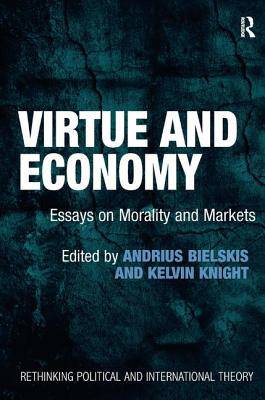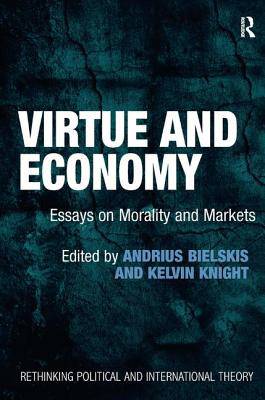
Door een staking bij bpost kan je online bestelling op dit moment iets langer onderweg zijn dan voorzien. Dringend iets nodig? Onze winkels ontvangen jou met open armen!
- Afhalen na 1 uur in een winkel met voorraad
- Gratis thuislevering in België vanaf € 30
- Ruim aanbod met 7 miljoen producten
Door een staking bij bpost kan je online bestelling op dit moment iets langer onderweg zijn dan voorzien. Dringend iets nodig? Onze winkels ontvangen jou met open armen!
- Afhalen na 1 uur in een winkel met voorraad
- Gratis thuislevering in België vanaf € 30
- Ruim aanbod met 7 miljoen producten
Zoeken
€ 274,95
+ 549 punten
Omschrijving
Interest in Aristotelianism and in virtue ethics has been growing for half a century but as yet the strengths of the study of Aristotelian ethics in politics have not been matched in economics. This ground-breaking text fills that gap. Challenging the premises of neoclassical economic theory, the contributors take issue with neoclassicism's foundational separation of values from facts, with its treatment of preferences as given, and with its consequent refusal to reason about final ends. The contrary presupposition of this collection is that ethical reasoning about human ends is essential for any sustainable economy, and that reasoning about economic goods should therefore be informed by reasoning about what is humanly and commonly good. Contributions critically engage with aspects of corporate capitalism, managerial power and neoliberal economic policy, and reflect on the recent financial crisis from the point of view of Aristotelian virtue ethics. Containing a new chapter by Alasdair MacIntyre, and deploying his arguments and conceptual scheme throughout, the book critically analyses the theoretical presuppositions and institutional reality of modern capitalism.
Specificaties
Betrokkenen
- Auteur(s):
- Uitgeverij:
Inhoud
- Aantal bladzijden:
- 264
- Taal:
- Engels
- Reeks:
Eigenschappen
- Productcode (EAN):
- 9781472412560
- Verschijningsdatum:
- 28/05/2015
- Uitvoering:
- Hardcover
- Formaat:
- Genaaid
- Afmetingen:
- 156 mm x 234 mm
- Gewicht:
- 548 g

Alleen bij Standaard Boekhandel
+ 549 punten op je klantenkaart van Standaard Boekhandel
Beoordelingen
We publiceren alleen reviews die voldoen aan de voorwaarden voor reviews. Bekijk onze voorwaarden voor reviews.











